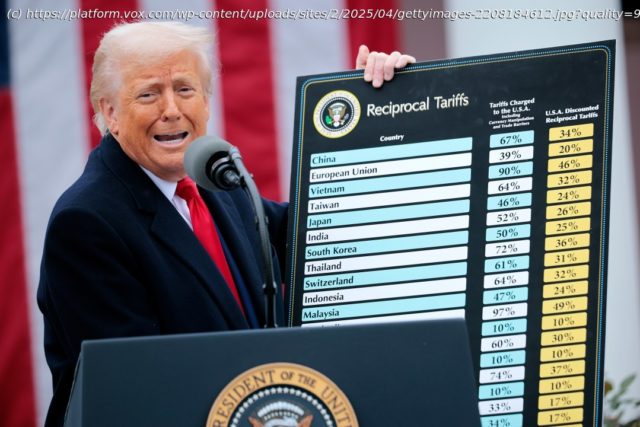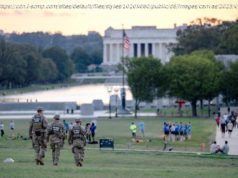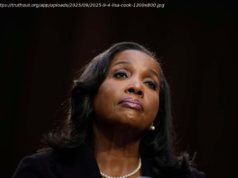Oops.
The Trump administration formally asked the Supreme Court on Wednesday evening to decide whether President Donald Trump’s ever-shifting tariff policy is lawful. Two federal courts, and a total of 10 federal judges, have all concluded that it is not.
The remarkable thing about Trump’s petition asking the justices to take up this case, which is known as Trump v. V.O.S. Selections, it that it opens with a long list of factual claims that, if taken seriously by the Court, would compel the justices to strike down the tariffs. But that would assume the Republican-controlled Supreme Court applies the same limits on executive power to Trump that it imposed on Democratic President Joe Biden — a highly uncertain proposition.The tariffs are obviously illegal under the Republican justices’ “major questions doctrine”
During the Biden administration, the Republican justices relied on something called the “major questions doctrine” to strike down several of Biden’s policies. The Court’s Republicans only recently invented this doctrine. It has no basis in law, and it has only ever been used against one president in history: Joe Biden.SCOTUS, Explained
Get the latest developments on the US Supreme Court from senior correspondent Ian Millhiser.
That said, the Court did preview the doctrine in an Obama-era decision that applied it to a hypothetical regulation. In that case, Utility Air Regulatory Group v. EPA (2014), the Republican justices announced that “we expect Congress to speak clearly if it wishes to assign to an agency decisions of vast ‘economic and political significance.’” The idea was that, even if a federal law can be read to permit the executive to enact a particular policy, courts should read those laws narrowly if the policy is too ambitious.
Indeed, under Biden, the Court even used this recently made-up doctrine to strike down policies that are unambiguously authorized by federal law. In Biden v. Nebraska (2023), the Republican justices struck down the Biden administration’s attempt to cancel many student loans. But federal law could not possibly have been clearer that the executive is permitted to cancel these loans.
The relevant statute gave the education secretary broad authority to “waive or modify any statutory or regulatory provision applicable to the student financial assistance programs” during a national emergency such as the COVID-19 pandemic.
Start
United States
USA — Criminal Trump’s lawyers just inadvertently admitted that his tariffs are illegal






